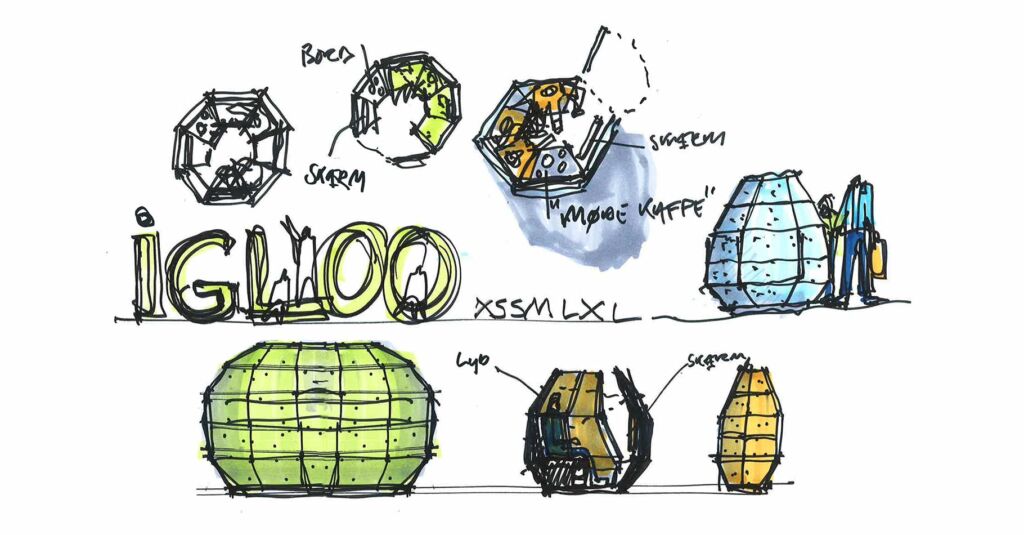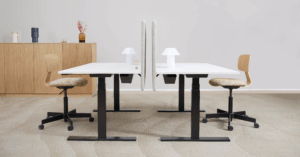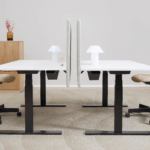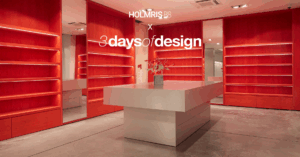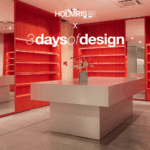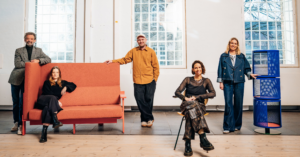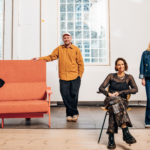How do you combine the benefits of large open-plan spaces and the individual’s need for room to focus and still remain flexible and welcoming? Read this article and learn more about a potential solution to this challenge.
Contemporary open-plan environments have become increasingly popular and are being established on a large scale in both educational institutions and office buildings – and much suggests that this trend will continue. Apart from saving space and thereby, being operationally economic, open-plan spaces also support the idea behind the special, Nordic management style that has become widespread in Demark and has sparked an interest internationally. This management style is built on trust, relations, and a democratic awareness.
In connection with this, a central element is openness in the organization and the collaboration structure as well as the physical frames to support the dialogue and meeting between people. The benefit of open-plan spaces is their openness, which creates relations between employees, teams, and departments.
With openness, however, come challenges – e.g. noise and lack of privacy. Often, you miss the ability to be absorbed in your work, which requires calm and confidential frames.
Therefore, it is important to be aware of the disposition and processing of open-plan spaces to ensure that the flexibility and diversity needed for different tasks and situations are embedded in the rooms. This makes it possible to reap the benefits of open-plan spaces while meeting the challenges they simultaneously spur.
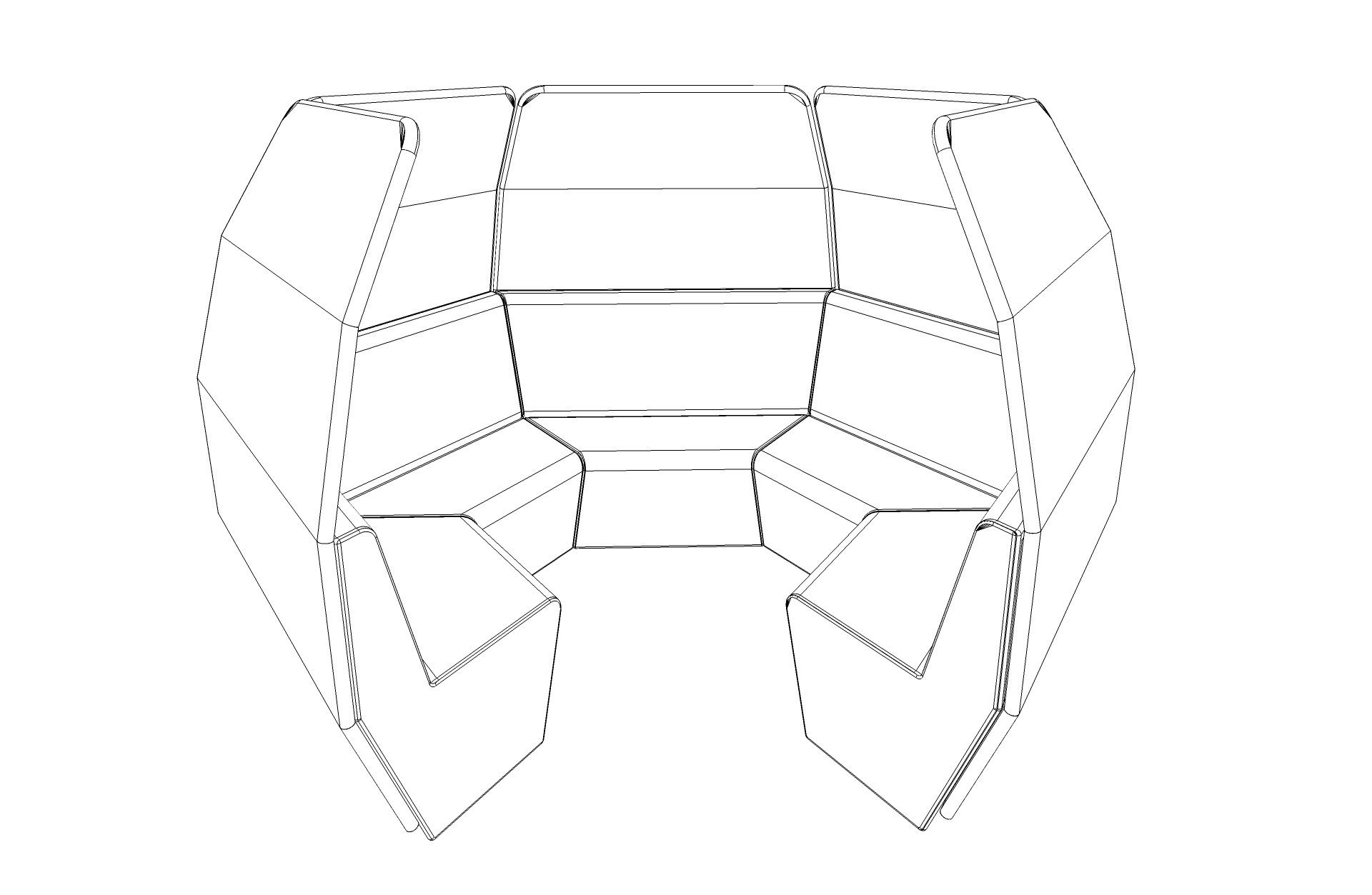
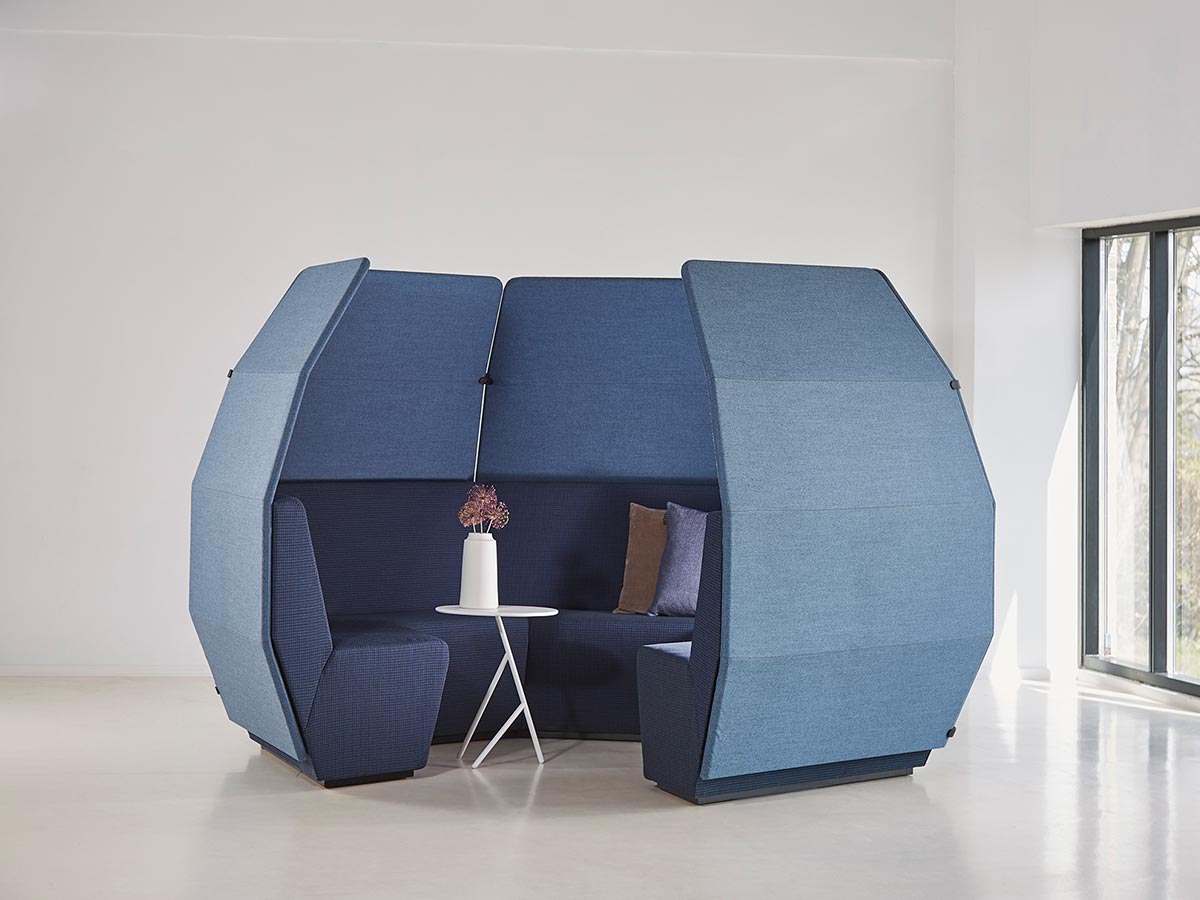
It makes sense on the bottom line
The IGLOO concept is perfect to create a room within a room.
With its round shape, it softens not only the large, open spaces – visually and acoustically – but also the hierarchy between people. It has been created as a democratic space, where you sit face to face and the dialogue is able to flow freely in a space that is shielded from noise and drop-bys.
In some way, IGLOO creates rooms that foster trust and create relations between people –in the large IGLOOs with room for more than 20 people to the medium sized as well as the smaller more agile IGLOO Hubs with room for approx. 6 people.
Together these different shapes and sizes make room for dialogues and co-creation both in private organizations and public educational institutions – from short team meetings to longer teaching classes.
Not just because it makes sense for the individual, but also because it makes sense on the bottom line.
Research shows that dialogue-based and co-creating rooms strengthen the organization’s effectiveness and performance. Partly because they increase the trust among people and partly because they signal the importance of sharing knowledge and developing solutions in collaboration.
Therefore, Nordic management is a good business – and the IGLOO represents Nordic management in tangible form.
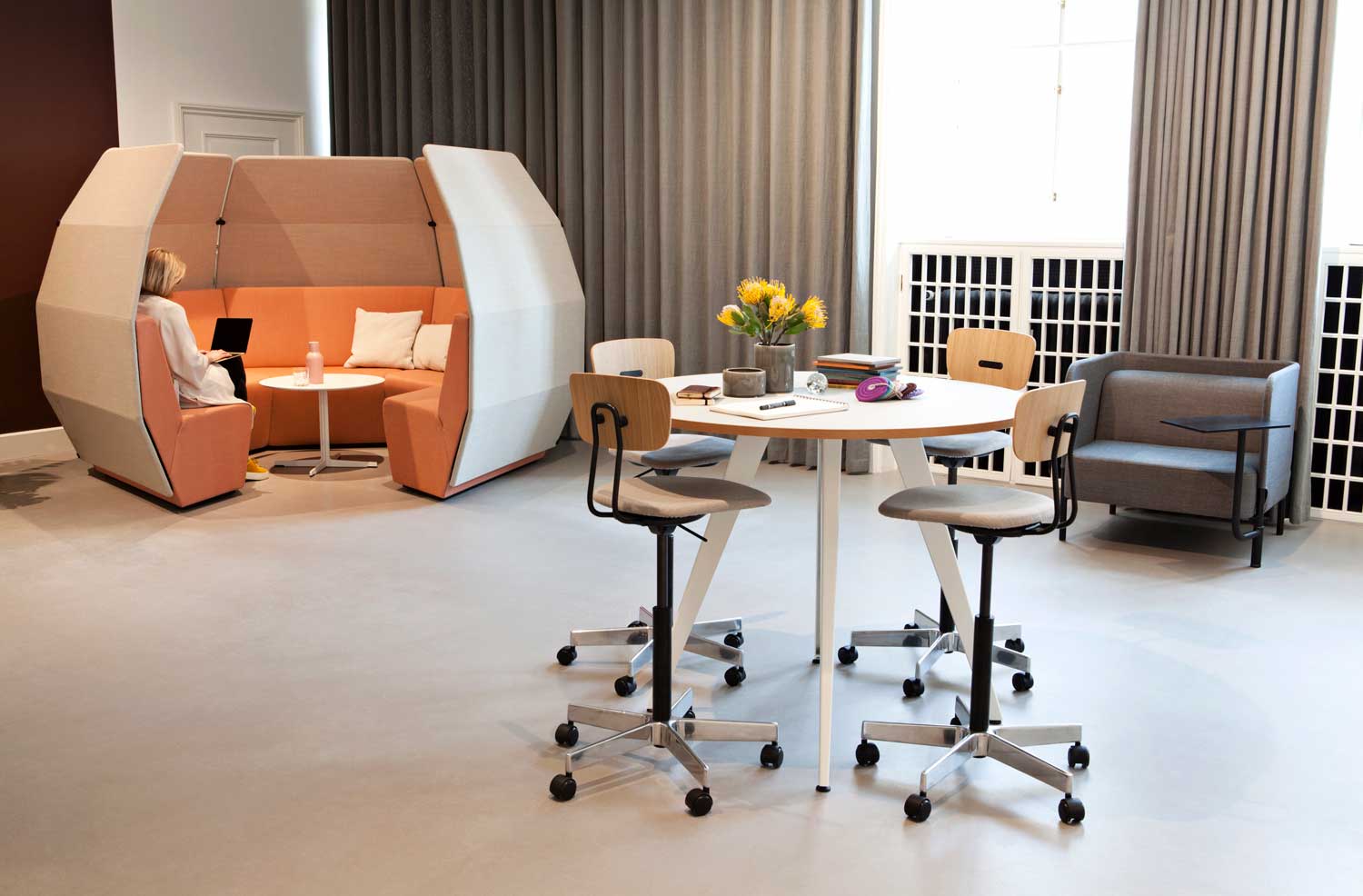
Make a difference in the working day
IGLOO was originally developed for VUC South’s educational center in Haderslev, and the IGLOO universe has since then been put into production and expanded with the IGLOO Hub.
To document how the IGLOO concept can move and enrich organizations, we conducted interviews with students and teachers from VUC South to highlight the institution’s actual development – and the results are evident.
IGLOOs have made a huge difference. They are actually experienced as the most popular rooms.
“The IGLOOs can do something that very few traditional rooms can do. There are holes in a very transparent room. It means a lot when you are sitting in a circle and the teacher is with you in the circle. It is a lot easier for people to do presentations than in traditional rooms. There is a certain comfort in the IGLOOs,” said a student.
“It fosters intimacy when you get eye contact with everyone in the room. It creates a relation and relation-based work is very important. It is very democratic. There is focus and it is not dangerous to say something. That results in a sense of safety in terms of opening up,” said a teacher.

